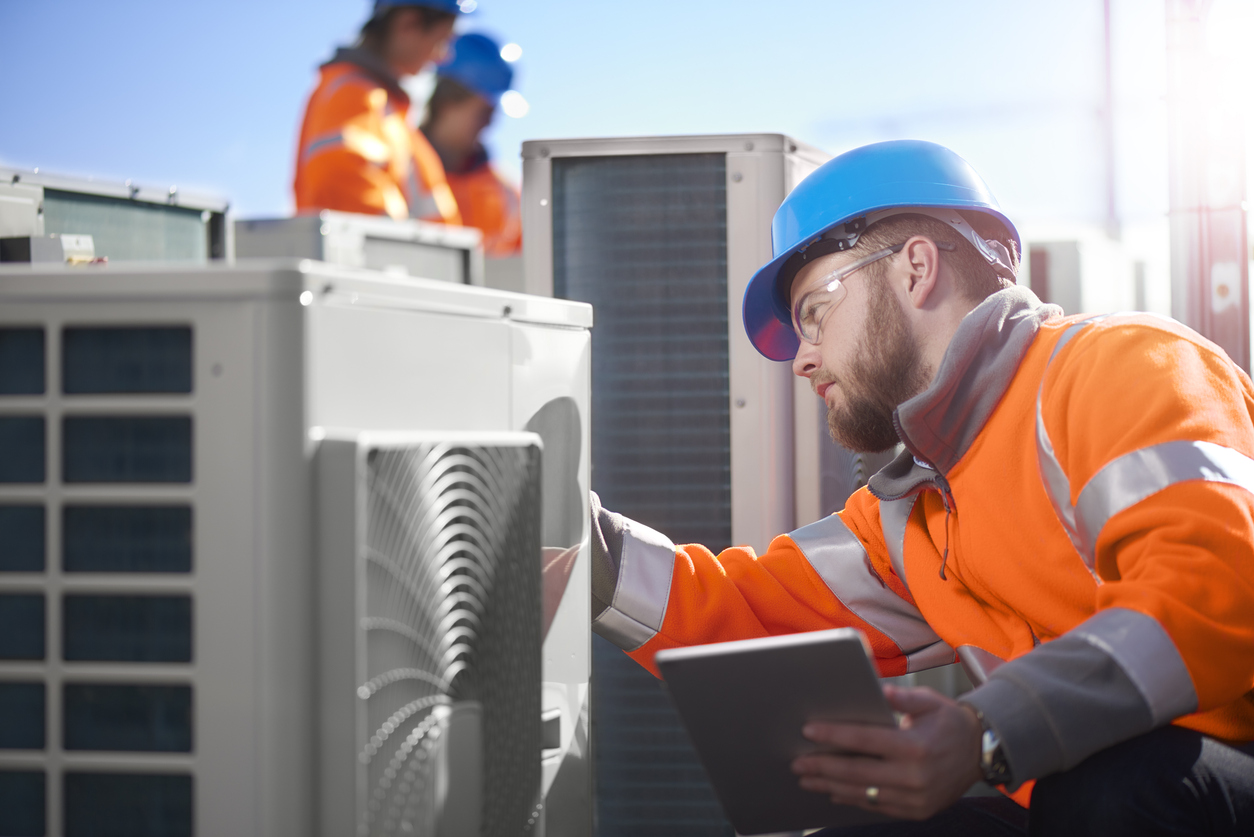Your HVAC system is the set up in charge of heating and cooling your home, and stands for Heating, Ventilation, and Air Conditioning. This system includes your furnace, air conditioner, and all associated ventilation systems required for proper air circulation not only for your home, but also for the system itself. An efficiently running HVAC system is key to good air quality, comfort, and safety in your home. With regular maintenance, you can ensure that your home is receiving good quality air for longer, and extend the life of your HVAC system by many years.
While these systems are fairly complex, there are a few things you can do without the help from professionals to keep your system running smoothly.
Air Conditioning Filters
This is probably the least expensive part of your system, and arguably one of the most important pieces of equipment to which you should be paying the most attention. Clean air filters allow for air to pass unobstructed through your vents, allowing your system to run much more efficiently and require lower energy costs to heat and cool your home. Running systems with no air coming from the vents may mean the filter is dirty and needs a change, as air can’t get past the large amount of collected debris.
Choosing the right filter depends on what you consider to be clean air. There are high-efficiency filters that are generally more expensive, but are unparalleled when it comes to air quality. For the most part, a mid-range filter will do the job just fine, and will suit the needs of the average consumer. These filters should be changed at least once every three months, but in times of high-use, it may be a good idea to change the filters monthly.
Condenser And Condensate Lines
This unit is found outdoors and is built to withstand much of what mother nature can throw at it, but it also collects lots of dirt and debris over time. Keeping the condenser free of exterior dirt or debris is generally good practice any time, and checking the interior should be done approximately once a year by a professional. This allows the refrigerant to be condensed much more efficiently, removes unwanted potential build-up that can travel to other parts of the system, and keeps your system running smoother for longer.
While they have similar names, condensate lines are actually meant to remove excess water from the air rather than dealing with the refrigerant itself. Clogs can form in the lines during peak season and stop the air conditioner from functioning. Small clogs can be handled by the homeowner, but it is generally best left to the pros if frost develops around any part of your system.
When Should You Replace Your HVAC System?
Proper care and routine maintenance should allow your air conditioner to last 15 years or longer, but sometimes, units may need to be replaced out of necessity for other reasons. Even if a system is functioning reasonably, if it is 10 years or older and seems to require regular repairs, it might be time to look into a new system. Older systems may also be highly inefficient, making their replacements good investments for long-term energy savings. Air conditioners installed prior to 2010 also used a certain type of refrigerant that was banned in the United States in 2020, and would, therefore, make it more difficult to obtain in Canada as well.
Talk to your local professional HVAC contractor if you have any questions regarding your best options for replacement.
How Often Should I Call The Pros?
Regular maintenance is always recommended to keep your system running in tip-top shape. Indeed, it’s mandatory for many manufacturers’ warranties to allow them to remain valid. Therefore, it is generally recommended to have a licensed HVAC specialist check out your system once a year, and usually recommended in the spring before peak season. This is because after a winter of low use and potentially harmful freezes, your system may be due for a tune-up. It also prepares you for the peak summer season right around the corner. If the homeowner has done their due diligence and has kept up-to-date with their own regular maintenance, it makes routine maintenance that much easier and likely less costly.
Regular HVAC maintenance should include:
- Checking refrigerant levels and testing for leaks
- Checking ductwork to ensure they are sealed correctly and measuring airflow
- Inspecting electrical components
- Oiling mechanical components
- General cleaning, including fans, blower motors or condensers if needed
- Ensuring the thermostat is functioning properly
- Run a detailed system safety check
- An overview of any work done and recommendations for future service
When done right, ensuring HVAC systems are properly maintained can help ensure you and your family are safe and comfortable for years to come.
Author’s Bio
Colin Hegarty is a content writer for BreezeMaxWeb that helps businesses showcase their brand through enticing copy. When he’s not working, you can find him playing net in a local beer league or biking around the city.






